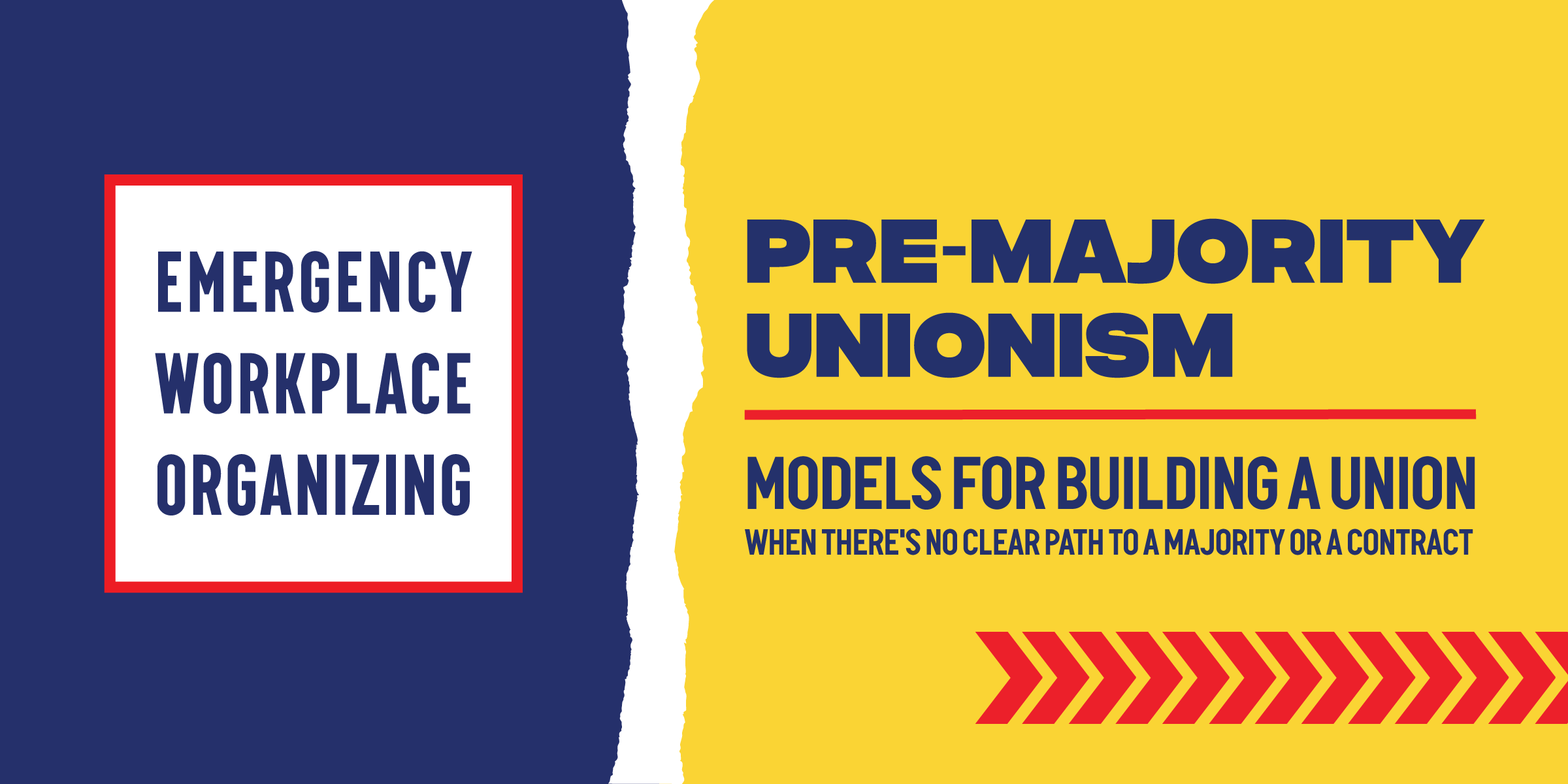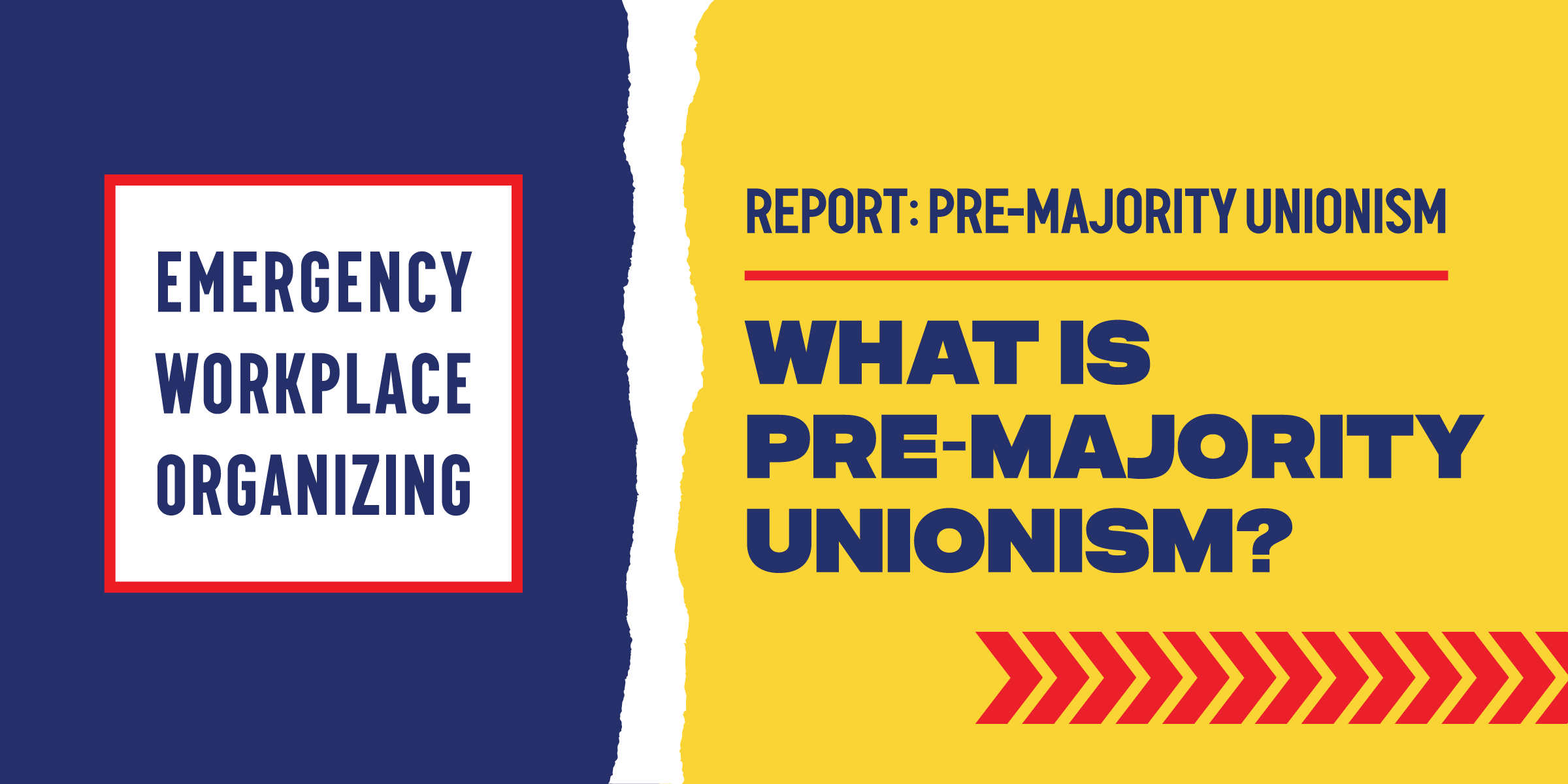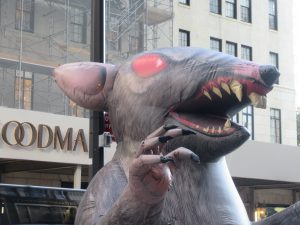Announcements 🗓
Want to organize your workplace but don’t know where to start? Join the Emergency Workplace Organizing Committee’s foundational training series, starting on Tuesday, Nov. 15 and running weekly on Tuesdays until Dec. 6! In 90-minute sessions over four weeks, we will discuss the problems that workers face at work and how you can come together with your co-workers to address them. You will learn how to prepare yourself and your co-workers to take collective action, building a democratic organization with your co-workers that can negotiate with the boss over your working conditions. Space is limited to 200 participants, so sign up now! Register today.
EWOC is excited to announce our participation in the upcoming NYC Labor Notes Troublemakers School on Nov. 19th. Join the EWOC contingent to attend workshops on developing your organizing committee, turning an issue into a campaign, beating apathy, inoculating at high-turnover workplaces, and more! EWOC also invites all our volunteers and workers who’ve reached out to us for support in their workplaces to join us for an EWOC sponsored luncheon at the conference. Don’t miss out! Sign up today.

Workers today want to join a union more than they have at any other point since the 1960s, yet only around 10% of U.S. workers are in unions, and that number hasn’t changed much in the past two decades. The biggest reason for this is that, if you want a union, but work at either a massive, nationwide company or in the public sector in more than 25 states, labor law has been working against you for the past 40 years. In light of this, most established unions don’t put meaningful resources into organizing workers at major chains and at half of the country’s public-sector workplaces.
If you’re a worker in one of these types of workplaces, and you’ve reached out to a union to start organizing, you’ve likely been told that it’ll be almost impossible to get recognized as a union, let alone win a contract, unless labor law changes. But what most workers don’t know is that there’s another kind of unionism outside of the traditional model that workers in these more difficult workplaces have been using for decades to fight for dignity and build the labor movement, even when the traditional unionization route isn’t available to them. This model is something we’re calling pre-majority unionism, and we’re dedicating a whole new section of the EWOC website to it.
World of Work 🌍
CA: 150 mechanics, machinists, and service technicians of Teamsters Local 952 went on strike in Orange County last week after the transit authority walked out of bargaining. Negotiations have stretched on for months. Workers unanimously rejected a “final, best offer” from the employer in September and continue to stand together to demand a fair contract.
NY: 1,200 physician trainees at Montefiore Medical Center in the Bronx have called on the hospital to recognize their union. The residents are organizing with the SEIU Committee of Interns and Residents to fight for full staffing, better pay and benefits, and improved family leave.
USA: Rank-and-file workers in key logistics sectors are fighting for fair pay, benefits, and leave. Pilots at American and United Airlines both rejected contract proposals on Monday, and Delta pilots voted to authorize a strike. Meanwhile, hundreds of thousands of train operators, engineers, and mechanics are standing strong in the face of political pressure by continuing to organize amid a bargaining impasse with the major rail carriers.
IA: Striking workers of Local 100G of the Bakery, Confectionery, Tobacco Workers and Grain Millers Union have forced their employer, Ingredion, back to the bargaining table. The Local’s 122 members have been on strike since the beginning of August to demand changes to scheduling, overtime policies, and health insurance benefits.
Week in Labor History 📚
November 8, 1892: Workers in New Orleans begin a general strike, demanding a 10-hour workday and overtime pay. The strike was organized by the Triple Alliance Amalgamated Labor Council, a coalition of the Teamsters, Scalesmen, and Packers unions. The New Orleans strike was especially noteworthy as it was one of the first strikes in U.S. history to include integrated black and white workers. Despite arrests, intimidation, and attempts from bosses and the press to incite racial distrust, the workers held together and struck for four straight days, eventually winning their key demands.
Solidarity,
Team EWOC





